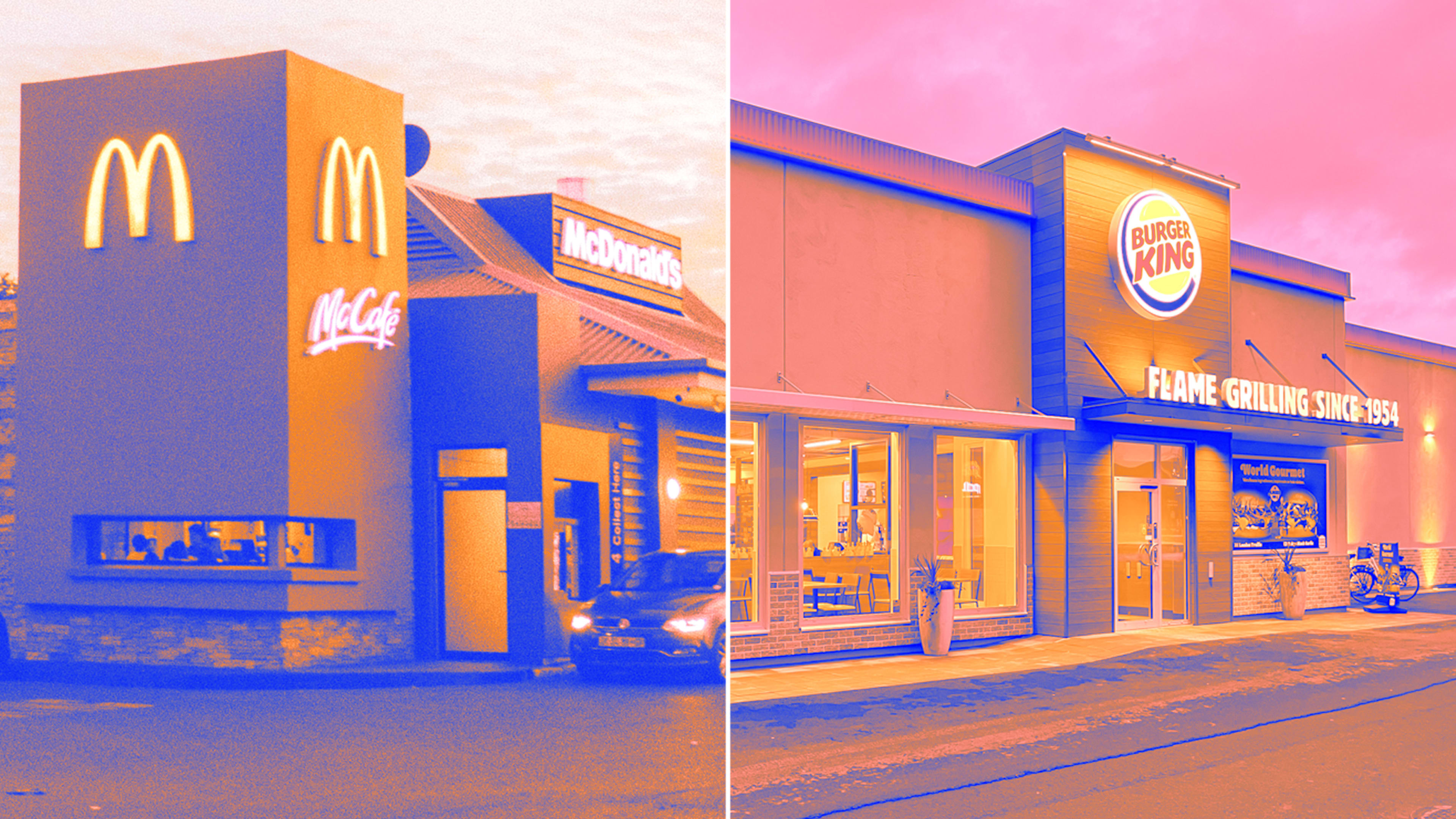Since primitive times, animals have competed for food. The most ferocious competition was between those creatures that were identical, as their food sources were the same. Different species pursued different food supplies, but identical animals pursued the same supply.
Millenia later, this is still true. So, how is it that there are millions of species today that aren’t constantly displacing others? The answer lies in diversity. The more abundant the environment, the more opportunity for an organism to achieve a specialty and flourish.
McDonald’s and Burger King
Today, there is an axiom that competition opens markets and doesn’t foreclose them. Because of this, Burger King will build its stores across the street from McDonald’s because everyone knows that people are going there to buy burgers. Neither the early, primitive animals nor Burger King were and are engaged in strategy for survival.
Other examples of “non-identical” competition for the same resources include Dunkin’ Donuts and Starbucks. Both sell coffee and breakfast items, but they’re not competing for the same customers. In a now-famous study, loyal customers of each were given free coffee if they patronized the other store. The idea was to determine how many would “desert” for the other brand. The answer was none, zero, nadie.
The Dunkin’ people thought they had invaded someone else’s living room and were being shunned, while the Starbucks people were stunned at the poor furnishings and lack of oat-flavored, non-gluten, double-shot trentas. (I exaggerate but only minimally.) As a result, the researchers realized that each had its own market that was safe, and wasn’t about to “steal” from the other’s market. Growth would have to come from unaffiliated coffee addicts.
Without their own fans, true competitors with identical markets will fight until one is vanquished because they can’t both thrive—at least to the same degree. So while Coke and Pepsi drinkers have very little “crossover,” Beta fell to VHS and Kodak fell to Fuji.
Related: 5 Ways Your Business Can Beat Its Competitive Bullies
We also mistakenly think of auto companies “in competition” with each other. But Toyota, Ford, Bentley, Porsche, and Mercedes are in the same basic business—road transportation—yet they have differentiated their products so as to appeal to certain markets. My contention is that the NSX from Honda was a fine sportscar and among the best at its price, but people weren’t ready to buy a Japanese sportscar. That particular buyer associated sports cars with Germany and Italy.
It’s clear that “competitors” can exist and thrive if they provide sufficient appeal to their desired market. The hugely successful “talk radio” hosts, from Rush Limbaugh to Howard Stern and Don Imus, were, and were not and are not seeking to “recruit” new listeners from other sources. Rather, they know exactly who their “buyers” are and strive mightily to continue to appeal to them. That’s also why late-night TV shows don’t have huge sways in viewership once established.
Here are some truisms about how competitors can win in a finite marketplace.
Competitors aren’t generalized
Ford is not a competitor for Bentley and the Four Seasons Hotels are not competing with Sheraton. But the Four Seasons are competing with the Peninsula hotels and Ford is competing with Toyota. Thus, the distinctions created between an organization and its closest competitors will decide who wins and who loses.
Find your ideal market
It’s best to identify your ideal market or buyer and seek 100 percent of that market rather than try to embrace wider markets against entrenched competition that already “owns” their market. Not everyone is an ideal buyer and huge amounts of time, energy, money, and repute can be wasted. You’re better off with a small “slice” of ideal buyers than a huge portion of unlikely buyers. It’s these ideal buyers to whom you must appeal.
Independence can create an advantage
From my experience coaching entrepreneurs and solo practitioners, it’s apparent that selling yourself alone can be a distinct advantage. The issue in this case is one of branding because you need to be far different from the person down the block or across the street—or in a now-remote world, from another country.
You have a current market—whether you are for-profit, nonprofit, academic, governmental, entertainment, recreation, or whatever. That market is yours, and a key premise is to keep it!
Alan Weiss, PhD, is a consultant, speaker, and author. Through his consulting firm, Summit Consulting Group, he has worked with more than 500 leading organizations. Weiss has published 60 books; his latest is Sentient Strategy: How to Create Market-Dominating Strategies in Turbulent Economies (Productivity Press).
Recognize your brand’s excellence by applying to this year’s Brands That Matter Awards before the early-rate deadline, May 3.
